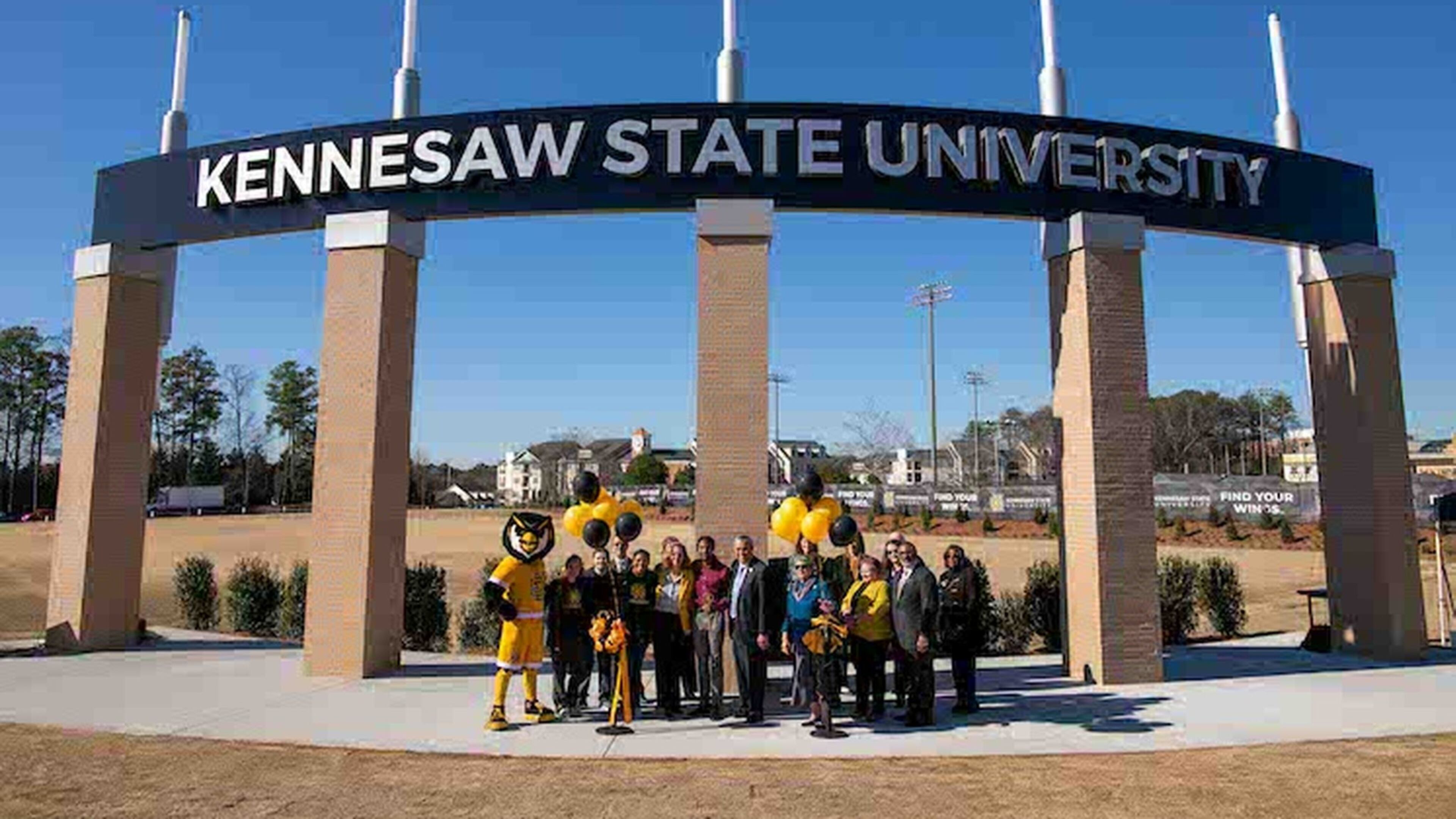Kennesaw State group to explore ‘racial challenges and opportunities’

Kennesaw State announced Tuesday it has created a task force to explore "racial challenges and opportunities" at Georgia’s third-largest university.
“This task force is comprised of a diverse group of students, faculty and staff who will work with existing structures and newly identified stakeholders to lead KSU toward meaningful change for our community and beyond,” KSU President Pamela Whitten said in a blog post announcing the group.
The 21-member task force will be led by Sylvia Carey-Butler, the university’s chief diversity officer. The task force is scheduled to meet this week and will have listening sessions on its two campuses.

Colleges and universities across the nation in recent weeks have been pressured to address complaints of systemic racism as part of protests against racially-charged killings of African Americans. Georgia State University, which has the largest enrollment of any school in the state, created a 17-member task force in mid-June to address racial inequities on its campuses. The University System of Georgia a few days later announced it created a group to consider name changes to of any buildings and colleges.
KSU is one of the state’s fastest-growing and racially-diverse schools. About 22% of its nearly 38,000 students were Black, state records show. Only Georgia State and the University of Georgia have larger enrollments.
The university, which has campuses in Kennesaw and Marietta, has grappled with some issues involving race in recent years. The most prominent issue occurred in 2017 when a group of Black cheerleaders knelt during the National Anthem at football games in a silent protest against police misconduct and other issues. The University System of Georgia rebuked KSU for how it handled the protests. Sam Olens, who was KSU's president at the time, resigned shortly afterwards.

Some student activist and faculty were dismayed about Tuesday’s announcement.
Aliyah Smith, a leader of KSUnited, a student-led group created after the cheerleader protests, said administrators have inadequately addressed student complaints of racism at the university. Smith said she was disheartened that the task force doesn’t include anyone from the group nor KSU’s African studies department.
The group has asked, among other things, for the creation of an anti-racism education center at KSU, a request Smith said was first made a decade ago.
“They still haven’t built upon the promises they made,” said Smith, a pre-med student scheduled to graduate next year.
Heather Pincock, an associate professor of conflict management and member of KSU’s United Campus Workers of Georgia chapter, said one racial justice initiative the university should pursue is improving pay for Black employees. Black workers make up almost 45% of full-time workers making under $15 per hour but less than 10% of those making over $150,000, she said.



